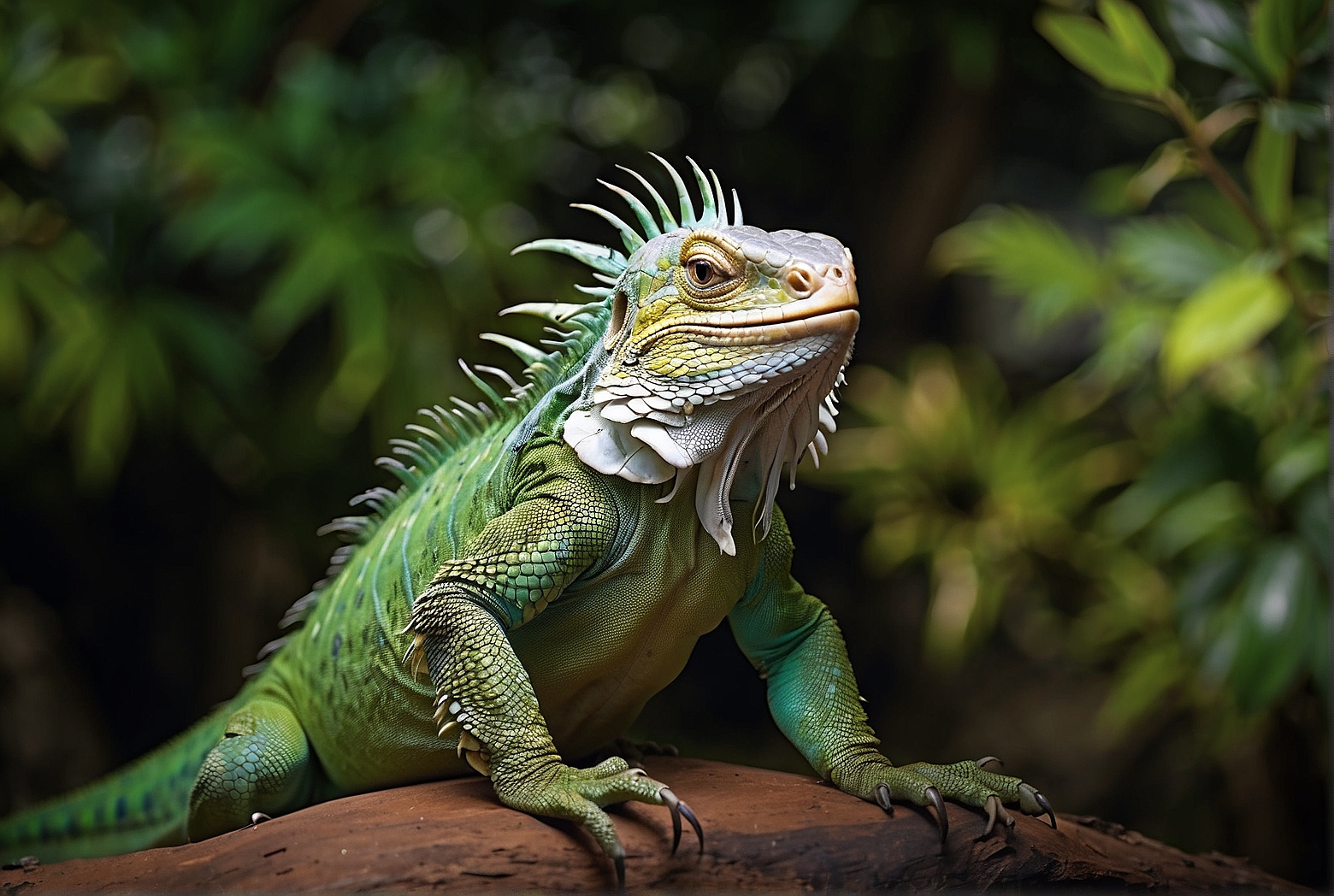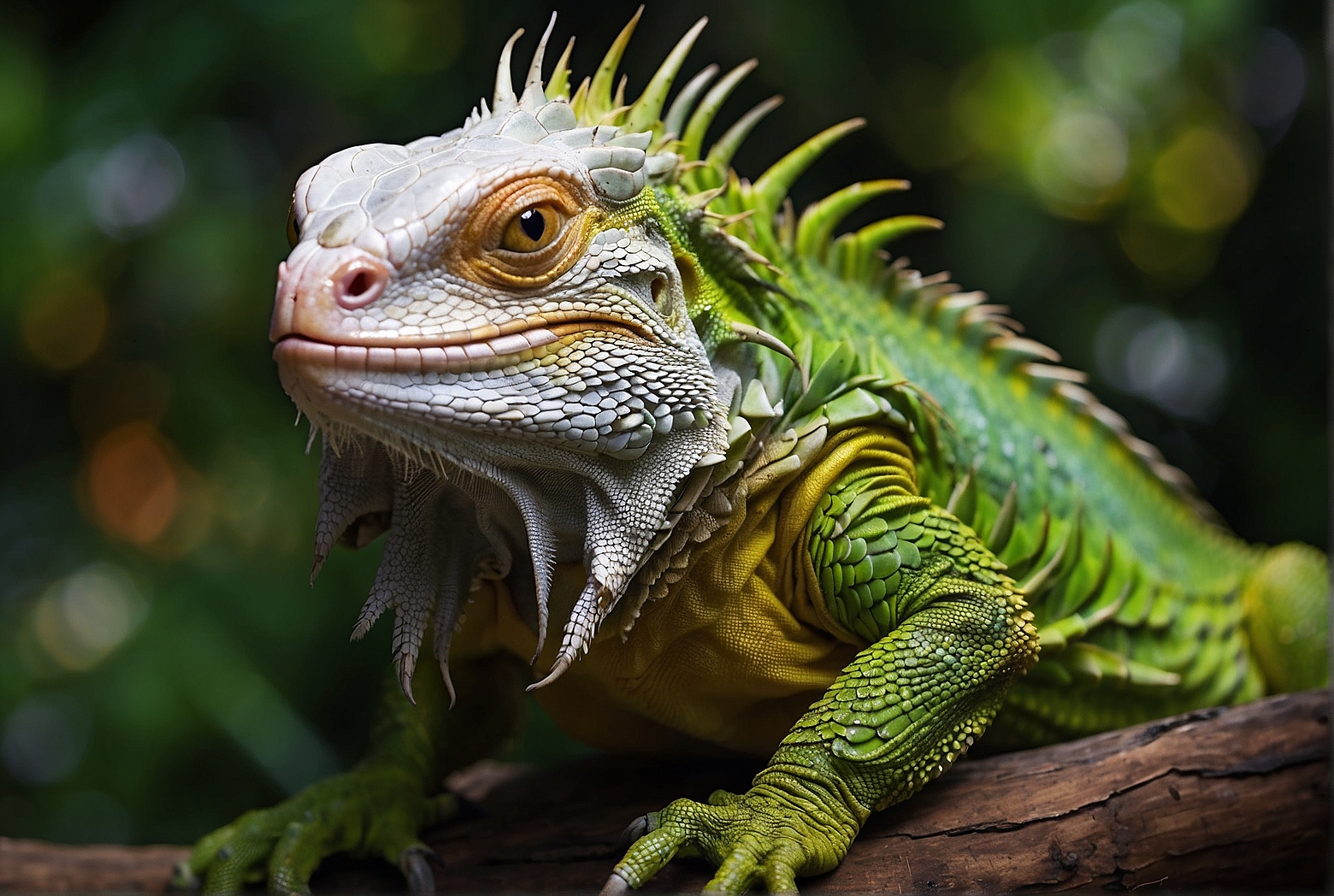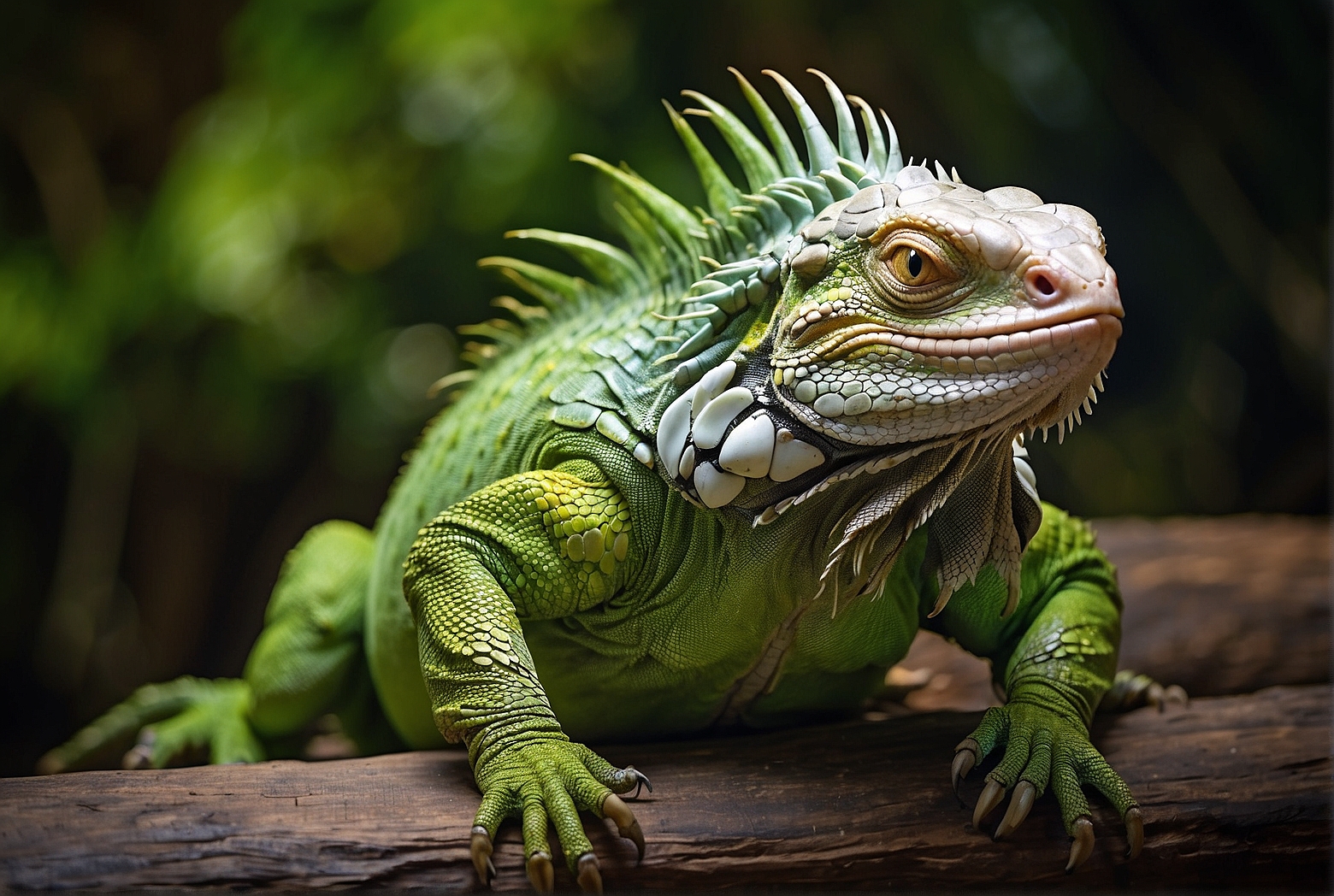Are you a proud owner of a green iguana but finding it challenging to select the right food for your scaly friend? Look no further! In this article, we will discuss the best food choices for your green iguana, ensuring that it receives a nutritious diet to thrive and stay healthy. From leafy greens to tasty fruits, we will explore a variety of options that are not only delicious for your iguana but also packed with essential nutrients. So, get ready to become a pro in choosing the perfect meals for your green iguana!
Leafy Greens
Leafy greens are an essential part of a green iguana’s diet. They provide important nutrients and fiber that helps promote digestive health. Here are some great options for leafy greens:
Collard greens
Collard greens are a popular choice for green iguanas due to their high calcium content. Calcium is crucial for the healthy development of bones and maintaining strong teeth. Collard greens are also a good source of vitamin A, which supports eye health and boosts the immune system.
Mustard greens
Mustard greens are another nutritious option for green iguanas. They are packed with vitamins and minerals, including vitamin C, which helps with the absorption of calcium. These leafy greens also contain antioxidants that can help protect the iguana’s body against free radicals.
Dandelion greens
Dandelion greens are not just weeds; they are also a nutritious addition to your green iguana’s diet. They are rich in vitamins A, C, and K, as well as calcium. Dandelion greens also have diuretic properties that can aid in maintaining proper kidney function.
Kale
Kale is a nutrient-dense leafy green that provides an array of essential vitamins and minerals. It is high in calcium, vitamin A, and vitamin C. However, kale should be fed in moderation due to its high oxalate content, which can bind to calcium and hinder its absorption.

Turnip greens
Turnip greens are another excellent choice for green iguanas. They are low in oxalates and high in calcium, making them a great calcium-rich option for a balanced diet. Turnip greens also offer a good amount of vitamin A, which promotes healthy skin and mucous membranes.
Vegetables
In addition to leafy greens, green iguanas can benefit from a variety of vegetables in their diet. These vegetables provide additional nutrients and add diversity to their meals. Here are some vegetables that are suitable for green iguanas:
Bell peppers
Bell peppers come in a variety of colors and are a great source of vitamin C and dietary fiber. They add a nice crunch to the iguana’s diet, and their vibrant colors can make mealtime more visually appealing for your pet.
Squash
Squash, such as butternut squash or zucchini, can be a tasty and nutritious addition to your green iguana’s diet. They are high in vitamins and minerals like vitamin A, vitamin C, and potassium. Squash is also a great source of hydration due to its high water content.
Carrots
Carrots are not only a crunchy treat but also a good source of beta-carotene, which is converted into vitamin A in the iguana’s body. Vitamin A is crucial for maintaining healthy skin and aiding in proper vision. Carrots should be fed in moderation due to their high sugar content.
Cucumbers
Cucumbers are refreshing and hydrating for green iguanas due to their high water content. They are also a good source of vitamins K and C. You can slice them into small, manageable pieces for your iguana to enjoy.

Zucchini
Zucchini is a versatile vegetable that can be fed raw or cooked. It is low in oxalates and high in water content, making it a hydrating and nutritious addition to your green iguana’s diet. Zucchini is also a good source of vitamins A and C.
Fruits
Fruits should be included in moderation as a treat for green iguanas. While they are packed with natural sugars, they also provide essential vitamins and minerals. Here are some fruits that can be given to green iguanas:
Mangoes
Mangoes are a delicious tropical fruit that is also rich in vitamin C and vitamin A. They provide a sweet and juicy treat for your green iguana. Remember to remove the mango pit and slice the fruit into appropriate-sized pieces.
Papayas
Papayas are another tropical fruit that green iguanas can enjoy. They are a good source of vitamin C, vitamin A, and dietary fiber. Papayas also contain an enzyme called papain, which aids in digestion.
Grapes
Grapes are a favorite snack for many green iguanas. It’s important to remove the seeds before feeding them to your pet, as the seeds can be a choking hazard. Grapes are a good source of hydration and contain beneficial nutrients like vitamins C and K.
Bananas
Bananas are a convenient and easily digestible fruit that green iguanas can enjoy. They are high in potassium, which is essential for proper muscle function. Bananas can be mashed or sliced for your iguana to consume.
Strawberries
Strawberries are a delicious and refreshing treat for your green iguana. They are low in calories and high in vitamin C. Strawberries can be sliced into bite-sized pieces or pureed for easy consumption.
Herbs
Including herbs in your green iguana’s diet can provide added flavor and nutritional benefits. Here are some herbs that are safe for green iguanas:
Basil
Basil is an aromatic herb that can enhance the taste of your green iguana’s meals. It contains antioxidants and has anti-inflammatory properties. Basil can be finely chopped and sprinkled over their greens for an extra burst of flavor.
Parsley
Parsley is a common herb that is safe for green iguanas. It contains essential vitamins like vitamin A and vitamin C. Parsley can be chopped and added to their leafy greens for added nutrition and flavor.
Cilantro
Cilantro is a herb with a refreshing taste that may be enjoyed by green iguanas. It is packed with antioxidants and contains minerals like calcium and potassium. Cilantro can be finely chopped and mixed with their leafy greens or vegetables.
Dill
Dill is another herb that can add a unique flavor to your green iguana’s meals. It is a good source of vitamin C and provides a small amount of calcium. Dill can be sprinkled over their food in small quantities.
Mint
Mint is an herb that can provide a refreshing and aromatic addition to your green iguana’s diet. It contains antioxidants and can aid in digestion. Mint leaves can be added to their leafy greens or vegetables for a hint of flavor.
Protein Sources
Green iguanas require protein in their diet to support growth and overall health. Here are some protein sources that can be included in their meals:
Cooked eggs
Cooked eggs, such as hard-boiled eggs, can be a good source of protein for green iguanas. They should be cooked thoroughly to avoid the risk of salmonella contamination. Eggs can be mashed or diced into small pieces before feeding.
Tofu
Tofu is a plant-based protein option for green iguanas. It provides essential amino acids and can be a good alternative for iguanas on a vegetarian diet. Tofu should be diced or mashed before offering it to your pet.
Lean cuts of cooked meat
Lean cuts of cooked meat, such as chicken or turkey, can be an occasional source of protein for green iguanas. It’s important to ensure that the meat is thoroughly cooked and free of seasonings or additives. Meat should be diced into small, easily manageable pieces.
Feeder insects (crickets, mealworms)
Feeder insects can be a natural source of protein for green iguanas. Crickets and mealworms are commonly available and can be dusted with calcium powder prior to feeding to enhance their nutritional value. It’s important to ensure that the insects are properly gut-loaded and not contaminated with pesticides.
Supplements
While a well-rounded diet can provide most of the necessary nutrients for green iguanas, some supplements may be needed to ensure they are receiving adequate amounts of certain vitamins and minerals. Here are some supplements to consider:
Calcium supplements
Calcium is essential for green iguanas as it supports bone growth, muscle function, and overall health. Calcium supplements can be added to their meals to ensure they are getting enough. It’s important to choose reptile-specific calcium supplements without added phosphorus.
Vitamin D3 supplements
Vitamin D3 is important for calcium absorption in green iguanas. Since these reptiles rely on UVB light to produce vitamin D3 naturally, captive iguanas may benefit from vitamin D3 supplements. Consult with a reptile veterinarian to determine appropriate dosage and administration.
Multivitamin supplements
Multivitamin supplements can provide additional vitamins and minerals that may be lacking in the iguana’s diet. These supplements should be reptile-specific and used sparingly to avoid over-supplementation. Always consult with a reptile veterinarian before adding multivitamin supplements to your iguana’s routine.
Avoid These Foods
While it’s important to provide a variety of foods for your green iguana, there are certain foods that should be avoided. Here are some foods to steer clear of:
Processed foods
Processed foods, including sugary snacks, chips, and fast food, should never be given to green iguanas. These foods can be high in unhealthy fats, sodium, and artificial additives that can be harmful to their health.
High-fat food
High-fat foods, such as fried foods and fatty meats, should be avoided in a green iguana’s diet. These foods can contribute to obesity and can strain the iguana’s liver and other organs.
Toxic fruits (avocado, rhubarb)
Certain fruits, such as avocado and rhubarb, contain toxic compounds that can be harmful to green iguanas. Avocados, in particular, contain persin, which can cause severe gastrointestinal issues in reptiles.
Insecticides or pesticides
It is crucial to avoid feeding green iguanas insects that have been exposed to insecticides or pesticides. These chemicals can be toxic to reptiles and may cause severe health problems or even be fatal. Ensure that any feeder insects are sourced from reputable suppliers.
Feeding Techniques
Proper feeding techniques can help ensure that your green iguana is getting a balanced and varied diet. Here are some tips to consider:
Rotate the greens
Rotate the types of leafy greens and vegetables you offer to your green iguana. This helps prevent monotony and ensures they are getting a range of nutrients. Alternate between different varieties of greens and vegetables to maintain a diverse diet.
Consider pellet food
Pellet food formulated specifically for green iguanas can be a convenient and reliable source of nutrition. These pellets are designed to provide essential vitamins and minerals. However, pellets should not be the sole source of food and should be supplemented with fresh greens and vegetables.
Monitor feeding amounts
It’s important to monitor the amount of food your green iguana consumes to prevent overeating or underfeeding. Adjust the portion sizes based on your iguana’s size, age, and activity level. Consult with a reptile veterinarian to determine the appropriate feeding amounts.
Provide fresh water
Green iguanas require access to fresh, clean water at all times. Ensure that a shallow water dish or bowl is available in their enclosure. Replace the water regularly to prevent bacteria growth and dehydration.
Feeding Frequency
The feeding frequency for green iguanas may vary depending on their age and size. Here are some general guidelines to follow:
Young iguanas: daily
Young green iguanas have higher energy needs and should be fed every day. Offer a variety of leafy greens, vegetables, and small portions of protein sources. Ensure that the food is appropriately sized for easy consumption.
Adult iguanas: every other day
Adult green iguanas have slower metabolic rates and can be fed every other day. This helps prevent obesity and allows for optimal digestion. Adjust the portion sizes and variety of foods to accommodate the iguana’s size and activity level.
Monitor weight and adjust accordingly
Regularly weigh your green iguana to ensure they are maintaining a healthy weight. Weight gain or loss may indicate an imbalance in the diet or health issue. Consult with a reptile veterinarian if you notice any significant changes in your iguana’s weight.
Additional Care Considerations
In addition to proper nutrition, there are some additional care considerations to keep in mind when raising a green iguana. These factors can impact their overall health and well-being. Here are some things to consider:
Gut-loading insects
If you choose to feed your green iguana feeder insects, it’s essential to gut-load these insects. Gut-loading refers to feeding the insects nutrient-rich foods before offering them to your iguana. This ensures that the insects carry additional nutrients that can be passed on to your pet.
Avoid over-supplementation
While supplements are beneficial, it’s essential to avoid over-supplementation. Green iguanas can experience toxicity if they receive excessive amounts of certain vitamins or minerals. Always consult with a reptile veterinarian to determine the appropriate dosage and frequency of supplement use.
Temperature and lighting
Green iguanas require a warm and well-lit habitat to thrive. Provide a basking area with a temperature gradient that allows the iguana to regulate its body temperature. Additionally, ensure access to UVB lighting for vitamin D3 synthesis.
Consult a reptile veterinarian
Regular check-ups with a reptile veterinarian are crucial for the overall health and well-being of your green iguana. A veterinarian will be able to provide tailored advice, perform health assessments, and address any concerns or questions you may have.
By following these guidelines and providing a balanced and varied diet, you can help ensure that your green iguana is healthy, happy, and thriving. Remember to consult with a reptile veterinarian for personalized recommendations and to address any specific needs of your pet.
